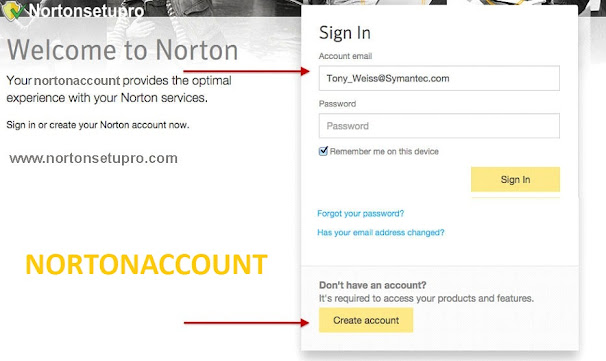Best Antivirus Protection for All Devices
We all use Best Antivirus Protection for all devices on the world wide web freely and widely. We visit dozens of websites daily including www.norton.com setup, but are we aware of what types of threats exist on the internet? We often forget about these, because most computers come with already installed security, but not all antiviruses are made equal. Many threats and risks are lurking online without us even noticing them and it takes just one trip to a sketchy site for our devices to pick up viruses or other types of threats for our apparatus, identity, information, etc. So, let's see what kind of threats are out there and which antivirus may be the best protection for all of your devices.
What Types of
Threats Exist Online?
Threats online are often referred to as
cybersecurity threats. This pertains to any possible malicious draw that tries
to access your data, disrupt digital surgeries or even damage information
unlawfully. Such dangers can originate from various sources, such as terrorist
groups, hacktivists, corporate spies, hostile nation-states, some criminal
associations, and hackers. There are several types of threats on the internet,
and you need to familiarize yourself with them so as to find them in time to
protect yourself.
Malware
This is malicious software and it has
several types - spyware, viruses, worms, and ransomware. Any kind of malware is
triggered when you click on a malicious link or attachment that may lead to
installing dangerous software on your device. Once malware is activated it can:
- Block your Accessibility to important network Elements, and Request
money in return - ransomware
- Install additional harmful software on your Apparatus
- Secretly and illegally obtain information from your hard Disk - spyware
Emotet
This type of threat is referred to as an advanced modular banking Trojan. It primarily serves as a dropper or downloader of additional banking Trojans, and Emotet remains one of the most costly and destructive malware online.
Denial of Service
DoS attacks flood your network or apparatus also makes them unresponsive to orders. This type of cyber attack is usually utilized to be able to flood the pc with different attacks or steal info. There is also a Distributed DoS attack - botnet - where millions of programs are infected with malware and commanded by a hacker and therefore are hard to trace.
Phishing
Phishing is usually done through fake communication. It can arrive through an email to trick the receiver to start it and carry out the instructions in the mail. These directions are usually focused on supplying credit card numbers, SSNs, and passwords. The target is to obtain and steal sensitive information and install malware on the sufferer's device.
What is a Computer Virus?
Even though there are dozens of dangers on the internet, we will focus here mainly on computer viruses. These are a few of the most frequent attacks and they can lead to more severe damage if not removed in time. To be able to operate, viruses need an infected active operating system or application. You probably already know that a .exe file may result in some issues if it came from an unreliable source. If you have norton antivirus, norton setup with product key.
The virus will be dormant so long as the
consumer of the apparatus will not trigger the file or application that's been
infected. When the program/file is triggered, the virus may quickly replicate
itself throughout the whole system. When it begins spreading, it will replicate
itself and send out itself for your friends and clients through messages.
How to Know Whether Your Computer Has Been Infected?
At times you can't even understand if a
virus was downloaded to your computer. Perhaps you visited a website that looks
reliable, maybe you accidentally downloaded email attachments or any site
created you download their document. However, once you've opened the document
(intentionally or not), the virus starts spreading. Luckily, there are ways to
spot a virus, even if you can't view it, there still are
some "symptoms" that your computer will reveal:
- Slow performance - taking too long to start up or open Apps
- Problems with shutting down or restarting
- Missing Documents
- Frequent system crashes and error messages
- Pop-up windows you don't Anticipate or you have Not seen before
- New applications appearing without you downloading them (Generally
toolbars)
- Overworked hard Disk and fan making sounds and whirring even if you
aren't doing much
- Emails and messages Which Ship out of your Account autonomously
- Browser lag or redirects
Best Ways to Protect Your Devices
When you observe that your device is
behaving unusually, your default reaction is that it's been infected with a
virus. However, it may not always be a virus, but it could be some type of
additional malware that is online. Fortunately, there are ways to protect your
devices from viruses and other malware:
- Use trusted antivirus and malware Applications, for Example Norton
360
- Always make sure to Upgrade your OS
- Blend only on encrypted (secure) networks
- Employ browser Shared sense
- Maintain your personal information safe and a tight grip on them
- Keep up with the Most Recent attacks and Study them
Malware is extremely annoying, annoying and can be dangerous, so always make sure that your devices are secured. You can do that by installing the very best antivirus software.




Comments
Post a Comment